|
Section
0401 |
|
|
March
2015 (Volume
65 - Issue 3) |
|
Our
objective: To increase awareness,
interest, and involvement in Section activities and quality-related subjects. Visit our web site at http://www.asqmontreal.qc.ca/ |
| 10 - Site Members | 16 - Unemployed Member Dues | |
| 17 - Feedback/Advertising Rates | ||
1.
Next
Event
Date Wednesday, March 25, 2015 Time 6:00 PM Place Lean
Maturity Assessment Tool
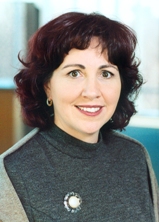 Marie-Hélène Jobin, M.B.A., Ph.D. Full Professor Director of the HEC Montreal **************************************
Please join us on Wednesday, March 25th to hear our guest speaker who will introduce a Lean Maturity Assessment Tool that was developed jointly by the HEC Montréal Healthcare Management Hub and Chair IRISSS of UQTR. |
2.
Ad
/
Publicité
|
||||||||||||||||||||||
|
The tool is the
result of an extensive field research done in collaboration with
several Quebec healthcare organizations. Although the model was
developed specifically for the health sector, we believe it will be of
interest to the entire Lean and continuous improvement community. The
talk will focus on the different dimensions of the assessment tool and
how organizations are actually using the tool in practice.
Marie-Hélène Jobin is a full professor in the Logistics and Operations Management Department at HEC Montreal. She holds a Ph.D. in management of manufacturing operations in a network context from Laval University, and an MBA in operations and decision making processes from the same university. She is the actual Director of HEC Montreal Pôle Santé, a research, training and knowledge transfer center in healthcare management. She leads a multi-disciplinary team of faculties, students and professionals involved in projects in partnership with health organizations. Her expertise lies in the area of performance management, process improvement, lean approach, change management and logistics. She has published many papers and cases on manufacturing scheduling, outsourcing, value creation, performance and results-based management. Ms. Jobin is the former Director of her Department. She was also the Director of the Case Center at HEC Montréal for five years, and launched the International Journal of Case Studies in Management, an electronic publication. The journal distributes pedagogical cases in management to more than 8000 subscribers. As a professional, she has frequently acted as a consultant and trainer for the public, para-public and private sectors. In the public sector, she has helped many government organizations implement performance management frameworks. On the international level, she has participated in the executive training program and she also carried out consulting mandates and process improvement activities (Kaizen). ******************************************
NOTE: This presentation is at the Université de Montréal (HEC), and therefore will be presented in French. Questions however may be fielded in English. Cost
ASQ members: $30 Non-ASQ members: $40 Students: $20 Metro: Université de Montréal Parking: Paid parking is available near H.E.C. Bring
your business cards and be ready to
network.
For
registration, please contact as applicable:
ASQ Members & Non-members Dr. David Tozer in order to get your ASQ recertification credits. Click HERE to register by email. Or
you may phone him at at 514-694-2830 For students Veronica Marquez veronica.marquez@hec.ca 3. The Editor's Corner
One year later . . . still waiting and hoping. Wikipedia From April 2014 Newsletter *********************************************************
Any feedback? Click on the link in the bottom right corner of this section and let me know. Thanks. |
|||||||||||||||||||||||
4.
A Word
from
your Section Chair
If you are like me and like watching the world news, you cannot help thinking that our world leaders could make good use of some simple quality tools and problem solving approaches that have been pioneered by the quality discipline. Should it be a six sigma Define-Measure-Analyze-Improve-Control (DMAIC) road map or root cause analysis (RCA) within a technical investigation, the first step is always to define the problem we are dealing with. In my experience, this first step is often overlooked and sometimes even skipped. If this is true within organizations with good quality support – Quality Department, Quality System, Lean Six Sigma initiative and so on – we can wonder how less mature organizations quality-wise do with problem definition. I am always amazed by the fact that people working on a same team chartered to solve the same problem often have a different definition of what the problem is in the first place. A good reason to make problem definition the first step. In order to define a problem, I personally favor the subject-verb- object construction and in writing please. I know that may sound elementary. Some will try to make you believe that you need their special template, form, or whatever “new” technique they can teach you so that will never err again with problem definition. I think that forcing somebody to write down in a concise manner and for everybody else on the team to see what he/she thinks the problem is very effective. When the pen makes contact with the paper, it forces discipline thinking and often triggers second thoughts about the perception of what the problem is. Simple, yes, but simple does not mean easy. When people leave the meeting room with one single written problem definition – probably after many iterations of scratching words, erasing and rewriting – the other steps of problem solving falls more naturally in place. After I moved from one office space to another recently, I was asked if I could make use of a white board in my new office. This was the smallest one I had ever seen. I gladly installed it on the wall and I believe that this will help me and my collaborators to get to the point with problem definition. Indeed, the constrained space on this small white board does not allow for elaborate technical drawing or colorful boxes and arrows with a bunch of acronyms here and there. There is enough space however to write a crystal clear, concise problem definition, the old fashion “simple” way: subject-verb-object. |
|||||||||||||||||||||||
5.
Had
You Come
to the
Last Event
By
Raymond E. Dyer, ASQ Senior Member, CMQ/OE, CQA,
Publicity co-chair
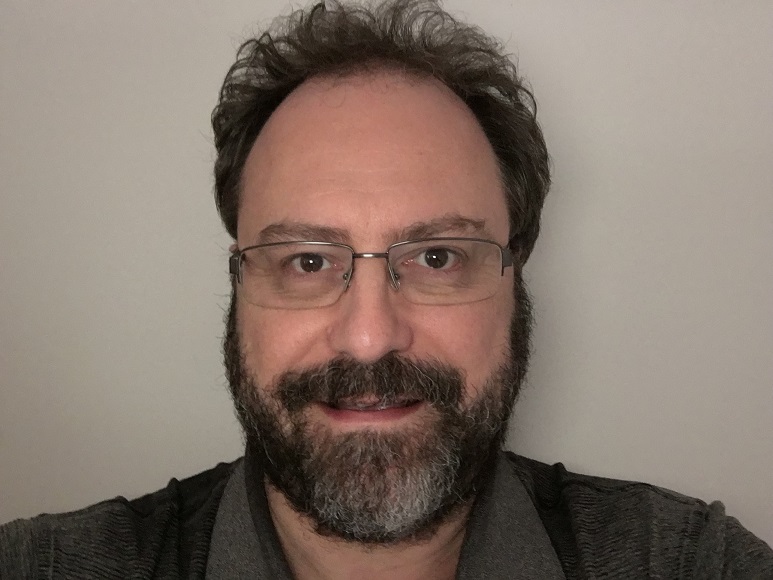 Had you come . . . Supplier Quality Management in Aerospace On
February 19th, John Reid presented to a room full of students (mostly
from Concordia University) and some ASQ members his retrospect on how
Supplier Quality Management had developed in Aerospace.
He started off with an amusing video portraying an airplane being built as it was flying. While comical from the advertiser's point of view, John clearly stated this was NOT an example of Quality is his books. A lot of planning and preparation goes into these airplanes even before they're built and a lot of checks and balances are in place as they're being built. Aerospace Quality is not something you achieve "on the fly". John went on to review the transition in aerospace inspection from: (1) "Incoming Inspection" (inspect as the material is received), to (2) "Source Inspections" (inspect at your supplier's location before the material is sent to you), to (3) "Source Inspection Witnessing" (witness the supplier's own inspector inspecting the material at their location), to (4) "Source Re-Inspection by Client designated Inspector" (have a supplier's own inspector designated to represent you, the customer, and re-inspect the material at their location). In other words, pushing the focus of inspections further back into the supply chain process where the detection of nonconformances costs us less and holding the different tiers of the supply chain increasingly accountable for their deliverables. Then John struck a familiar chord when introducing one of his (and also my) favorite gurus of Quality, Philip B. Crosby, and his four absolutes of Quality, i.e. (1) Quality is defined as conformance to requirements. (2) The system for causing Quality is prevention. (3) The Quality performance standard is Zero Defects or ZD. (4) The measurement of Quality is the Price of Nonconformance or PONC. It was very refreshing to see someone "get" Zero Defects. So many simply say it's an impossible target; i.e. Perfection. It's really an attitude not to accept nonconformance. I prefer to equate it to excellence. This was followed by a review of the increasing complexity of the aerospace Supply Chain and the Quality management over it. Air framers are becoming platform integrators relying on multiple tiers in the supply chain to assure "plug and play" capabilities. "The further the separation from the parent, the closer the need for parental guidance." Compliance to standardized Quality Systems (AQAP to ISO 9001 to AS 9100) is part of the equation but "Say what you do, Do what you say, and Be able to prove it" are not enough, one needs to meet the requirements of the standard and the Quality System must be effective. There was discussion on the IAQG Supply Chain Management Handbook, the SAE Nadcap, and various Quality tools such as PDCA, Lean Manufacturing, Process Mapping, FMEA, Fishbone Diagrams, and The Toyota Way. FMEAs were highlighted as a major component of a paradigm shift occurring in the aerospace industry. Then John reaffirmed that flying remains the safest mode of travel. We went from 35 accidents and 1059 deaths in 2005 to 20 accidents and 532 deaths in 2014. Rigour and discipline are the main root cause of most failures and need to be addressed via design, process, and human factors. Leaders need to represent (advocate for) the customer and represent them throughout the organization and its supply chain. All those involved must assure tier readiness to deliver Quality products on time with the aim of Zero Defects. This session was very informative and John provided very pragmatic examples and reflections. Those from other industries stood to gain as well. Thank-you John for an enjoyable and educational presentation! **************************************************
For networking
with local quality
professionals explore these groups:http://tech.groups.yahoo.com/group/Quality_Montreal/ http://www.linkedin.com/groups?gid=90170 |
|||||||||||||||||||||||
6. Voice of the Customer
This is my first contribution as VOC chair and by way of introduction, I have been on the executive of ASQ Montreal Section 401 for some years now, most recently as the treasurer and before that as the assistant program chair. The executive have agreed to run a survey this year using the very successful post card format we used two years ago. Timing of the survey has yet to be worked out and will be shared in subsequent newsletters. Give
me your feedback by e-mail
7. ASQ Student
Quality Award
The Montreal Section (0401) of the American Society for Quality, has established an Awards process to recognize significant contribution to the enhancement of the quality profession or the advancement of the goals and activities of the section by an individual, a group, a student or an organization. The objective of this award is to recognize outstanding achievements of students with significant contributions to quality for example through a paper, a book and Networking activities within the quality community. Nominees for this award don’t have to be members of the Montreal Section of ASQ , however They must have demonstrated a sincere and continuing interest in the advancement of quality principles through their educational environment and studies. The award criteria are: •Impact of contribution - 25% •Variety of contribution - 25% •Academic performance - 25% •Promotion of quality related activities - 25% The section is now accepting nominations for the Student Quality Award. Please send your nominations to the Awards Chair - Khaled Khattab: awards@asqmontreal.qc.ca. 8.
2015 Planned Events
Date Event |
|||||||||||||||||||||||
9.
Welcome
to our New Members
FEBRUARY
2015
Samareh Arooni Michael Benneter Santiago Frau Planas Eleonor G. Jasmin Gokul Jayaprakash Gurprabhjot Kaur Kossi Molley Tahereh Dorsa Mousavand Pavani Thaduri |
|||||||||||||||||||||||
10.
Site
Members
ASQ Montreal Section thanks our Site Members: |
|||||||||||||||||||||||
11.
Other
ASQ
Events
|
|||||||||||||||||||||||
12. ASQ NewsHave
You Had a Great Speaker Lately? Employees
Use Visual Management to Increase Safety, Improve Organization of
Medical Facility
|
|||||||||||||||||||||||
13.
ASQ
Montreal Section Education Program 2015
By
David
Tozer,
Ph.D., ASQ CQE and SSBB, Education & Audit Chair Having ASQ certification gives you an edge in the market and can significantly increase your income. ASQ Certification often leads to higher paying employment. The money invested in education and certification increases chances of finding employment quickly in the down sizing environment we live in. People who take the section sponsored refresher courses, and spend at least twice as much time as spent in the classroom on self study, have an 80%, or better, chance of passing the examination on the first attempt. Certified Quality Engineer Topics include: quality concepts, cost of quality, human resources, team formation and group dynamics, inspection, metrology, sampling, reliability, quality standards, quality audit, statistics, design of experiments, process improvement, liability, and modern management methods for improving quality. Certified Six Sigma Black Belt Topics include: quality concepts, cost of quality, enterprise wide deployment, business process management, project management, team formation and group dynamics, define, measure, analyze, improve, control, lean enterprise, statistics, design of experiments, and design for six sigma. Certified Six Sigma Green Belt Topics include: quality concepts, cost of quality, enterprise wide deployment, business process management, project management, team formation and group dynamics, define, measure, analyze, improve, control, and statistics. Certified Manager of Quality/Organizational Excellence Topics include: quality concepts, quality planning, customer focus, quality standards, project management, cost of quality, team formation and group dynamics, human resources and improvement.
Certified
Quality Auditor Topics
include: quality concepts,
team
formation and group dynamics, management responsibility, audit
objectives, audit preparation, audit conduct, audit reporting,
sampling, and basic statistics.
Certified Quality Inspector Topics include: quality concepts, team formation and group dynamics, geometry, metrology, reading drawings, mechanical processes, statistical process control, inspection, and sampling. Calendar and Registration Form Questions? In house courses, etc.: David Tozer: (514) 694-2830, education@asqmontreal.qc.ca
|
|||||||||||||||||||||||
14.
Executive
Committee Meetings & Officers
Section Executive
Committee
(Leadership Team) Meetings are held at different locations, starting at
6 PM. The next regular meeting is tentatively scheduled for : April
7, 2015 Consult the List of Your Executive
for
2015 here |
|||||||||||||||||||||||
15. RecertificationRevised Recertification CostPlease note there are revised costs for recertification. Some members are using the old journal which lists the previous cost. Submitting it this way will only delay your recertification while ASQ attempts to contact you for your permission to use the new price. I have attached the front page of the application journal. Two of them. Both are in PDF format. One is merely a form to print out and complete by hand and the other is a fillable form to be printed out after you have completed it. Basic hand form Fillable form If you are a member of Section 0401 Montreal, then contact Norman Dickinson at certification@asqmontreal.qc.ca or at 514-334-6102 to find out where to send your journal. If you are NOT a member of Section 401, then contact ASQ directly at 1-800-248-1946. 16.
Unemployed Member Dues
Unemployed ASQ members receive a discount on their membership dues based on consecutive years of membership.
Eligibility Criteria
Benefits
NOTE: The following links require that you be logged into your account before you try to activate them. Download the ASQ Unemployment Program
Application
PDF (105 KB) |
|||||||||||||||||||||||
17.
Feedback
Please send us your comments about the ASQ Montreal Section 0401 E-Newsletter (topics, layout, length, etc.). Do you want to contribute an article (English or French) or a good idea? Contact us by e-mail. |
|
||||||||||||||||||||||
Pass
it on
We invite you to forward this Newsletter to friends and colleagues who may be interested. |
|||||||||||||||||||||||
|
The
ASQ
Montreal
Section 0401 Newsletter is prepared by and published for its members. How to
Opt Out. This
e-mail
is being sent in the course of normal Montreal Section
business
to the e-mail address of record. We are not responsible for forwarded
e-mails. If you no longer wish to receive e-mail communications from
the Montreal Section (your section) of ASQ, please visit your ASQ
account to unsubscribe or
reply to this message, indicating Opt
Out in the
e-mail body
and in the title. |
|||||||||||||||||||||||

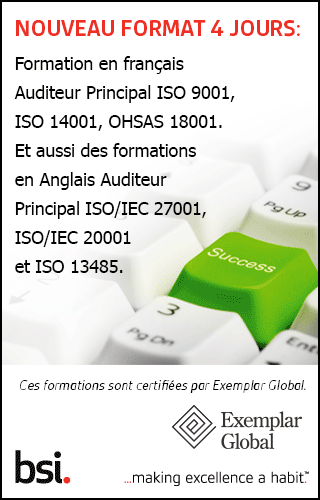

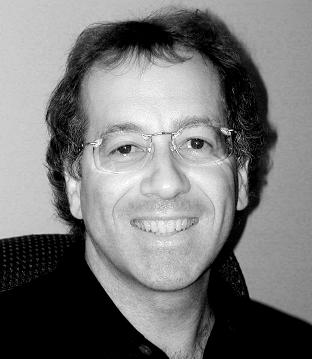
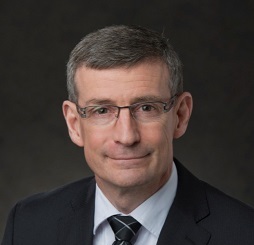
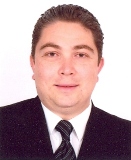
 By
David Tozer,
ASQ CQE and SSBB, Education and Audit Chair
By
David Tozer,
ASQ CQE and SSBB, Education and Audit Chair